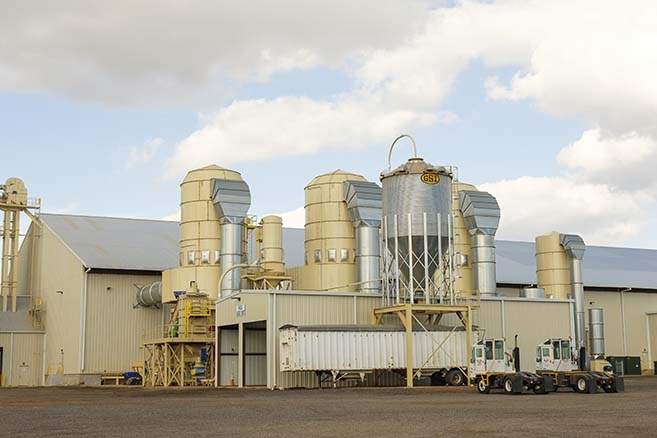Coastal Growers owners reportedly look to sell or lease peanut shelling plant

By DON FLETCHER
News Staff Writer
Note: This story includes a response from Coastal Growers that was not received until after our print edition had gone to press on Tuesday.
Economic officials say there is little chance the $87-million Coastal Growers peanut shelling plant, which recently laid off the majority of its workforce, will ever stand vacant. It could possibly change ownership in the near future, though.
According to sources within the local economic development community, the farmer-owners of the agricultural cooperative that operates the state-of-the-art peanut processing facility are looking to either sell the business or lease it to a major processor, such as Con-Agra or Birdsong.
Coastal Growers has had three CEOs since it began operations two years ago, but Jess Nicholas, Executive Director of the Escambia County Industrial Development Authority, said the plant’s problems have not been due to management.
“The problem is not with any of the CEOs, past or present,” Nicholas said. “If the question is ‘do we expect Coastal Growers to go away,’ it would be very unlikely for one of the — if not the — most technologically advanced peanut mill, located in the middle of several hundred acres of peanuts, to disappear.
“The ownership could end up looking different than what it currently is, but even if they were to have a change in ownership, those owners would most likely use the same assets they have now to do the same job.”
Atmore Mayor Jim Staff said he understands the company is trying to recover from last year’s market fluctuation that sent peanut prices soaring.
“I don’t know how many people they let go, but I understand it was a major layoff,” Staff said. “From what I’ve been told, they’re going to keep operating, but they’re going to try and make things run more smoothly.”
Coastal Growers Human Resources Director David Dexter confirmed the mayor’s remarks in an email statement sent Tuesday afternoon (June 4).
“Coastal Growers has been experiencing challenges and continues to explore many solutions to improve its condition and efficiency while reducing costs,” said Dexter. “While these measures have succeeded to some extent, Coastal Growers has had to reduce its workforce to improve further and ensure the company’s financial stability. Coastal Growers will continue to assess its business holistically and focus on adopting solutions for the company’s long-term sustainability.”
Reports are that last year’s drought-driven spike in peanut prices forced a wedge between farmer-owners, some of whom refused to deliver their peanuts to the plant, despite contracts that were signed prior to the market jump.
United States Department of Agriculture (USDA) officials suspended Coastal Growers LLC’s warehouse license in early May, prohibiting the company from warehousing any agricultural products that were not already warehoused when the suspension went into effect. No evidence could be found that the suspension has been lifted, and no reason for the suspension could be found.
Nicholas said he and his family were in Arkansas, on vacation, when he got a phone call informing him of the peanut mill’s layoff. The person who called reported that Atmore police were called to the plant to make sure no problems grew out of the announcement. City police, who are required to stand by in such situations, last did so when Masland Carpet announced a massive force reduction.
Another source reported that the company will continue to operate the plant and ship out the peanuts it has in inventory, and that Coastal Growers is “still making payments on its loans and still has operating capital.”
The ECIDA Director said he doesn’t know the scope of the layoff, or the number of employees who remain in post-layoff. Several sources estimated that between full-time, part-time, work release inmates and seasonal employees, the company had “between 70 and 90, and possibly more than 100,” employees at peak employment.
“I’ll say again that I would think it highly unlikely that a $90-something million peanut shelling facility as technologically advanced as that one, located where it is, will go out of business,” said Nicholas. “This is certainly not what everybody around here wanted to see happen, but I think it’s the middle of the story, not the end of the story.”
